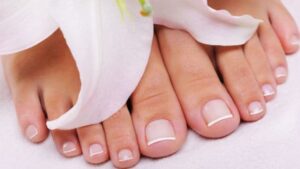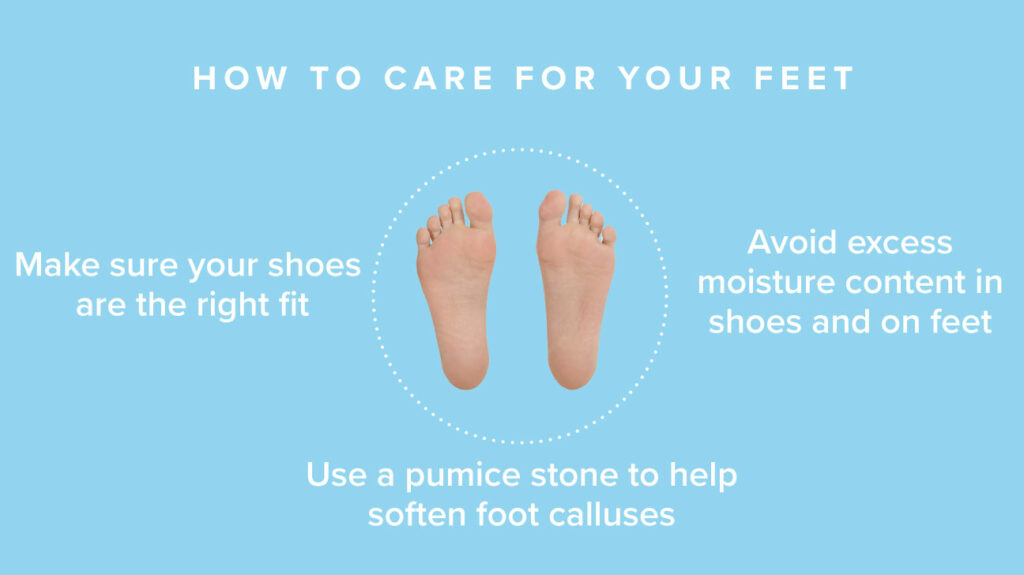Your feet are one of the most important parts of your body. Not only do they help you get around, but they also play a role in your overall health. It’s important to take care of your feet by following a few simple tips. In this blog post, we will discuss seven-foot care tips that you need to know!
Contents
- 1 Tips For Footcare
- 1.1 Wear the right shoes
- 1.2 Keep your feet clean and dry
- 1.3 Trim your toenails regularly
- 1.4 Soak your feet regularly
- 1.5 Wear comfortable shoes.
- 1.6 Exercise your feet
- 1.7 Moisturize your feet
- 1.8 Exfoliate your feet
- 1.9 Check your feet regularly
- 1.10 Wash your feet every day
- 1.11 Be careful when you trim your nails
- 1.12 Don’t go barefoot
- 1.13 Protect your feet in the winter
- 1.14 Change your socks often
- 1.15 See a podiatrist
- 2 Conclusion
Tips For Footcare

There are various foot care tips that can help you keep your feet healthy and free from problems. Here are some of the most important tips that you should follow:
Wear the right shoes
This is one of the most important foot care tips as wearing the wrong type of shoes can lead to various problems such as blisters, calluses, and corns. Make sure that you choose shoes that fit well and are comfortable to wear. Also, avoid wearing high heels as they can put a lot of strain on your feet.
Keep your feet clean and dry
Wash your feet daily with soap and water. Dry them thoroughly, especially between the toes, to prevent fungus growth. For example, you can use a foot file to remove dead skin cells from your heels and toes.
Trim your toenails regularly
Trimming your toenails once a week can help prevent Ingrown toenails. When trimming your nails, make sure that you cut them straight across and not too short. For example, if you have diabetes, you should trim your toenails more frequently because you’re at a higher risk for foot problems.
Soak your feet regularly
Soaking your feet in warm water can help soften calluses and corn. You can add Epsom salt to the water to help relieve pain and swelling. Make sure to dry your feet thoroughly after soaking them.
Wear comfortable shoes.
Wearing shoes that fit well and don’t rub or pinch can help prevent blisters, calluses, and corns. If you have to wear high heels, make sure to put them on for only a few hours at a time.
Exercise your feet
Exercise can help improve circulation and flexibility in your feet. Try some simple exercises like toe raises, ankle rolls, and calf raises.
Moisturize your feet
Moisturizing your feet can help keep the skin on your feet soft and healthy. Look for a lotion that contains glycerin or petroleum jelly. Keeping your feet moisturized helps prevent cracking and dryness.
Exfoliate your feet
This foot care tip helps remove dead skin cells and calluses from your feet. Use a pumice stone or foot file to gently exfoliate your feet. For example, you can use a pumice stone to exfoliate your feet in the shower. Just wet your feet and then rub the pumice stone over any rough areas.
Check your feet regularly
Inspect your feet for any cuts, blisters, or other problems. If you have diabetes, it’s important to check your feet daily for any signs of injury or infection. For instance, you should look for:
- Redness
- Swelling
- Bruising
- Cuts or scrapes
- Blisters
- Ingrown toenails
- Calluses or corns
See your doctor if you have any concerns about your feet.
Wash your feet every day
Use soap and water to cleanse your feet, paying particular attention to the areas between your toes. If you have diabetes, talk to your doctor about the best way to care for your feet.
Be careful when you trim your nails
Trim your toenails straight across and file down any sharp edges. If you have diabetes, it’s best to have a professional do this for you to avoid injury.
Don’t go barefoot
Never walk barefoot, even indoors. You could step on something sharp or dirty that could injure your feet. For example, you could step on a nail or glass and get an infection.
Protect your feet in the winter
In cold weather, wear socks and shoes to protect your feet from the cold. Don’t walk on ice or snow if you can avoid it. For instance, if you have diabetes, you should take extra care of your feet during the winter. That’s because diabetes can cause nerve damage and circulation problems that make it harder for your body to keep your feet warm.
Change your socks often
Wearing the same pair of socks for days on end is a surefire way to invite bacteria and fungus to take up residence on your feet. Socks that are too tight can also cause problems by restricting blood flow and leading to foot cramps.
See a podiatrist
A podiatrist is a doctor who specializes in foot care. If you have any foot problems, see a podiatrist for treatment. The podiatrist will be able to prescribe medication or perform surgery if necessary.
Conclusion
It may be concluded foot care tips are essential for keeping your feet healthy and looking their best. Taking good care of your feet can help prevent problems from developing and keep you feeling comfortable and confident. While some foot care tips may seem like common sense, others may be new to you. Use these tips as a starting point to develop a foot care routine that works best for you.
Physical Therapy help patients recover from pain. If you’re experiencing Back pain, Shoulder pain, Knee pain, Neck pain, Elbow pain, Hip pain, or Arthritis pain, a physical therapist at MantraCare can help: Book a physiotherapy session.


